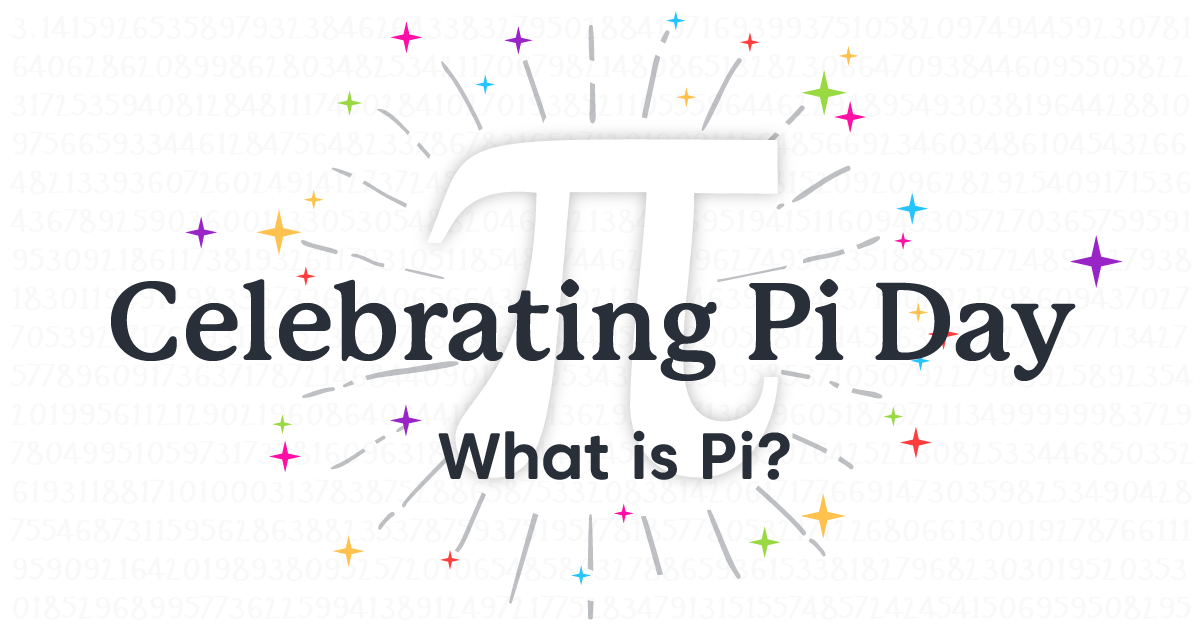What is Pi?

With all the excitement around Pi Day, you might wonder, “Why is pi different from other numbers?” Pi Day is celebrated on March 14th (3/14 in month/date format) because the first three digits of pi are 3.14. However, those digits go on forever because pi is what is known as an irrational number. It is also a transcendental number. But before we get too deep, let’s step back and remember how pi was first derived.
Pi, typically written using the Greek character π, is mathematically described as the ratio of a circle’s circumference to its diameter. The first estimations of pi originated in ancient civilizations, with early calculations appearing in Babylonian and Egyptian texts. For more history of pi, revisit the Papers blog post from March 2024!
Mathematically, pi is an irrational number, which means that it is impossible to express it as a finite number or a simple fraction. Its decimal representation goes on infinitely without repeating. It is also transcendental, a special set of numbers, meaning that pi is not the solution or root of any non-zero polynomial equation with rational coefficients.
Pi’s infinite series of non-repeating digits has made it a frequent test of a supercomputer’s calculating capabilities. For example, in 2024, a new record was set calculating pi to 202 trillion digits.
Pi recitations are also very popular, with people competing to see how many digits they can recite from memory. The current Guinness Book of World Records lists 3 records related to pi. Alberto Davila Aragon (UK) holds the record for reciting 280 digits in a minute. A more lengthy record is held by Rajveer Meena (India) who recited 70,000 digits of pi over the period of 10 hours while wearing a blindfold.
For most calculations, knowing pi out to the hundredth or thousandth decimal place is sufficient. But if you want to celebrate Pi Day by memorizing digits, consider this advice for memorization: create a story or song that incorporates the digits, or break the number down into smaller, more manageable chunks.
However you choose to celebrate, we at Papers wish you an irrationally happy Pi Day! And, to make the day even sweeter, enjoy 15% off a Papers Pro subscription when you use the code PIDAY2025. But hurry, this offer is only valid through March 19th, 2025!